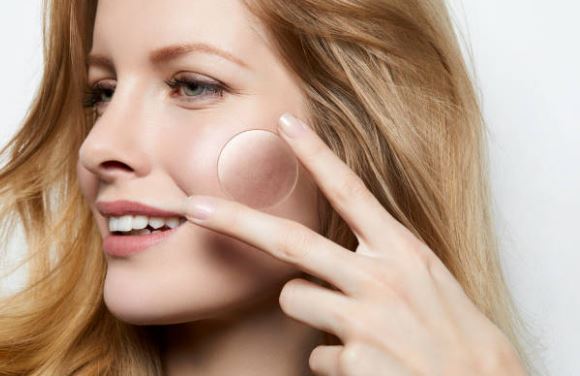Damaging your skin barrier can put your skin at risk. Excessive exfoliation, a no-no for most people, is the ultimate worst-case scenario. It can lead to prolonged inflammation, dehydration, and even skin cancer.
The harsh reality of it is that you are not too old to have a weakened barrier. In this article, you will learn how skin barrier repair works, what causes skin barrier problems, and how to strengthen your skin barrier with a few simple lifestyle changes.
What is Your Skin Barrier? Why is it Important?
The Skin Barrier also known as the moisture barrier is the outermost layer of your skin. It prevents the escape of water from inside your body and the entry of microbes, chemicals, and physical irritants from the outside world. The ingredients in your moisturizers replenish the water content lost by respiration, evaporation, and sebum production. Beyond moisture, it also helps regulate body temperature by keeping the heat in and cold out. It’s very important to protect our Skin Barrier because its our outermost protection and contributes greatly to us having clear skin.
The outermost layer of your skin (epidermis) is somewhat similar to a living hamster ball. It has the capacity to stretch and recoil. The uppermost layer, the stratum corneum, is responsible for water resistance and reduction in surface area that allows water penetration. This process of water regeneration also helps produce sebum, which acts as an emollient and emulsifier helping in the retention of water in skin cells by creating an occlusive surface. As we age, the stratum corneum dries out and loses elasticity, which means less water is available for regeneration.
Glycoproteins that loop around each other create a highly structured barrier. The structural integrity is improved by the peripheral proteins, keratin, and lipids, which aid penetration of water and penetration oils at the same time. This process helps in keeping the skin extensible. Skin barrier repair involves replenishing the number of glycerophospholipids in the stratum corneum and ensuring that the structural integrity of the skin barrier is maintained.
What can damage your skin barrier?
There are several things that can affect your skin barrier.
Environmental conditions
The environment you live in, as well as things you do in it, such as exposure to UV light and cold, can affect your skin barrier. Over-exposure to UV light and cold from air conditioning can damage the skin barrier resulting in dryness. Some people are vulnerable to skin conditions such as eczema and psoriasis. They are usually at a higher risk of developing skin problems because of environmental factors.
Food and Diet
The foods we eat play a vital role in maintaining our health, but they also affect the integrity of our skin barrier. Certain foods can reduce moisture retention in the skin, contributing to dryness or breakouts. Other foods can cause irritation and inflammation, which is another reason for damage to the skin barrier. The following foods can do this:
- Excess salt
- Sugar
- Corn syrup
- High fructose corn syrup
- Alcohol (especially wine)
Medications
Some medications can affect your skin barrier. Some of them are the ones used to treat acne and rosacea, as well as cholesterol medication. You should always ask your doctor about any potential medications you will be taking to make sure they won’t interfere with the integrity of your skin barrier.
Hormonal Changes
During puberty, young people’s hormone levels are unstable, which often causes an increase in acne and other pimples. This can cause the skin barrier to be damaged. Also, during menopause, the skin barrier loses its natural lubrication, so the skin becomes more prone to dryness and cracking.
Exfoliation
Accidental or regular exfoliation damages the skin barrier. Exfoliation removes dead cells from inside and outside the stratum corneum, which leads to dryness and increased risk of infection. The most common areas people exfoliate are the nose, face, and the tops of their hands. It can be hard to prevent dryness caused by exfoliation, so you should always be very protective of your skin when using an abrasive exfoliant.
How to know if your skin barrier is damaged?
You may notice one of the following signs when your skin barrier is damaged:
- Increased oil production
- Scaly skin, rashes, or redness
- Severe acne or breakouts
- Tingling, itching, or burning sensation
- Flaky, rough or peeling skin
- Changes to your natural coloring (pale and yellow nails)
- Tightening of the pores.
This is not a definitive test as it does not tell you how far the barrier has been damaged. You should go to a dermatologist for a full analysis to make sure your skin is healthy and protected.
How to Repair your Skin Barrier?
Skin barrier repair is about replenishing lost moisture in your skin. But before you start, it’s important to understand that repairing the damage is not a quick fix and there are some things you can do to help the process along so that you can get the best results possible.
A well-balanced diet with foods rich in nutrients such as omega-3 fatty acids is essential for healthy, protected skin.
How to protect and strengthen your skin barrier
Look for moisturizers containing humectants (e.g. hyaluronic acid and panthenol)
One way you can strengthen your skin is by using moisture-rich moisturizers. Humectants trap water from the air in the upper layers of the epidermis and prevent water from escaping through evaporation. Ingredients such as glycerin, hyaluronic acid, panthenol, and urea are humectants that you can look for when choosing a moisturizer for your skin barrier repair.
Skin pH and Ingredients
Using products with a pH level of 5.5 or slightly acidic will help prevent dryness and strengthen the skin barrier. Salicylic acid is an ingredient that is able to penetrate into pores, helping in treating acne and breakouts. It can also help repair damaged skin barrier. The product should be suitable for your skin condition and if you have sensitive skin, it’s always a good idea to test the product on a small area of the skin before going full force on the product.
Ultimately
Understanding skin barrier repair can be very useful. It is important to understand that a well-functioning skin barrier is vital for healthy skin, so it’s important to take good care of it. It is extremely difficult to make your damaged skin repair itself, so you should always look for external products containing vitamins or fatty acids that can help in rebuilding your damaged skin barrier.

